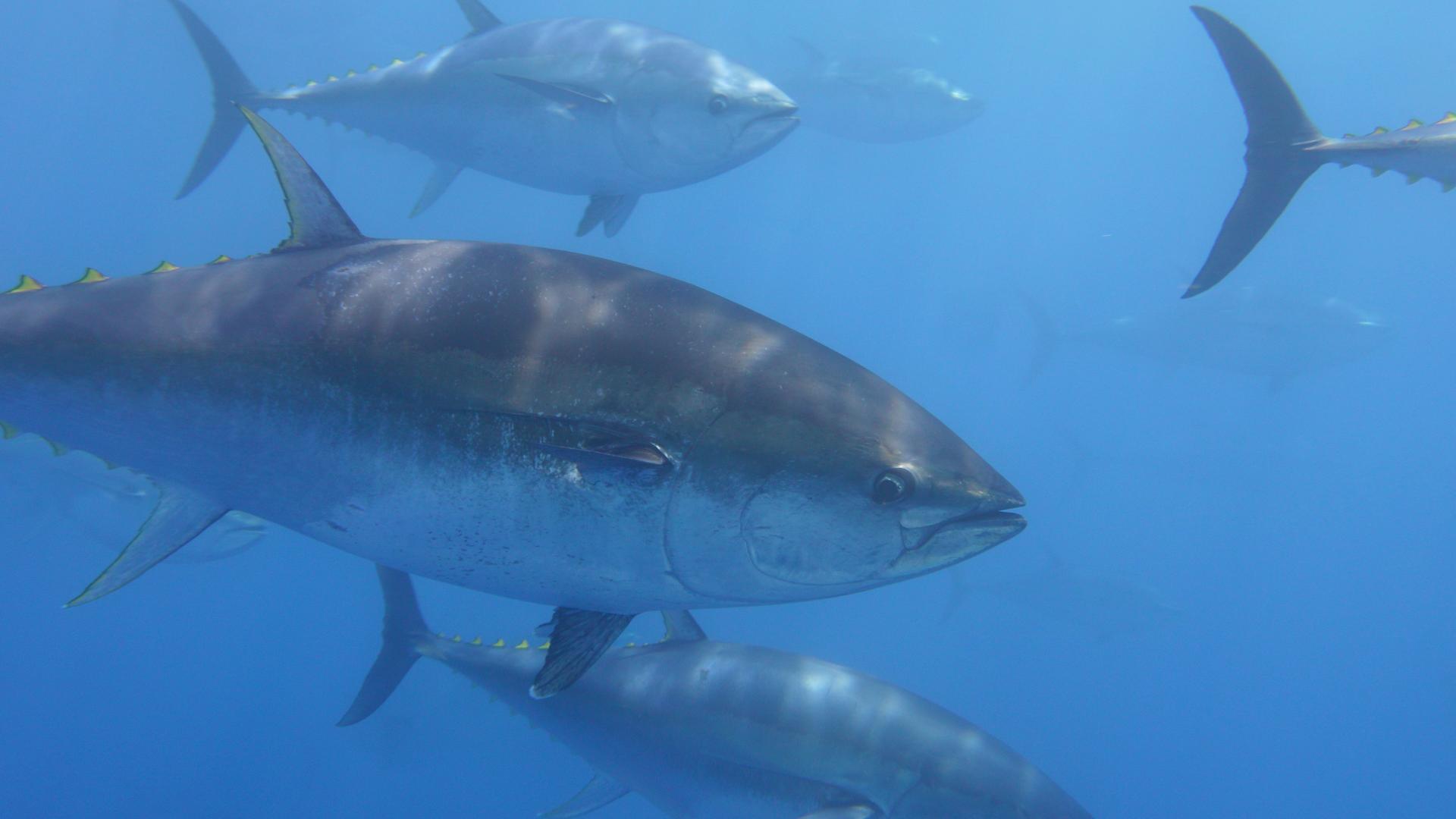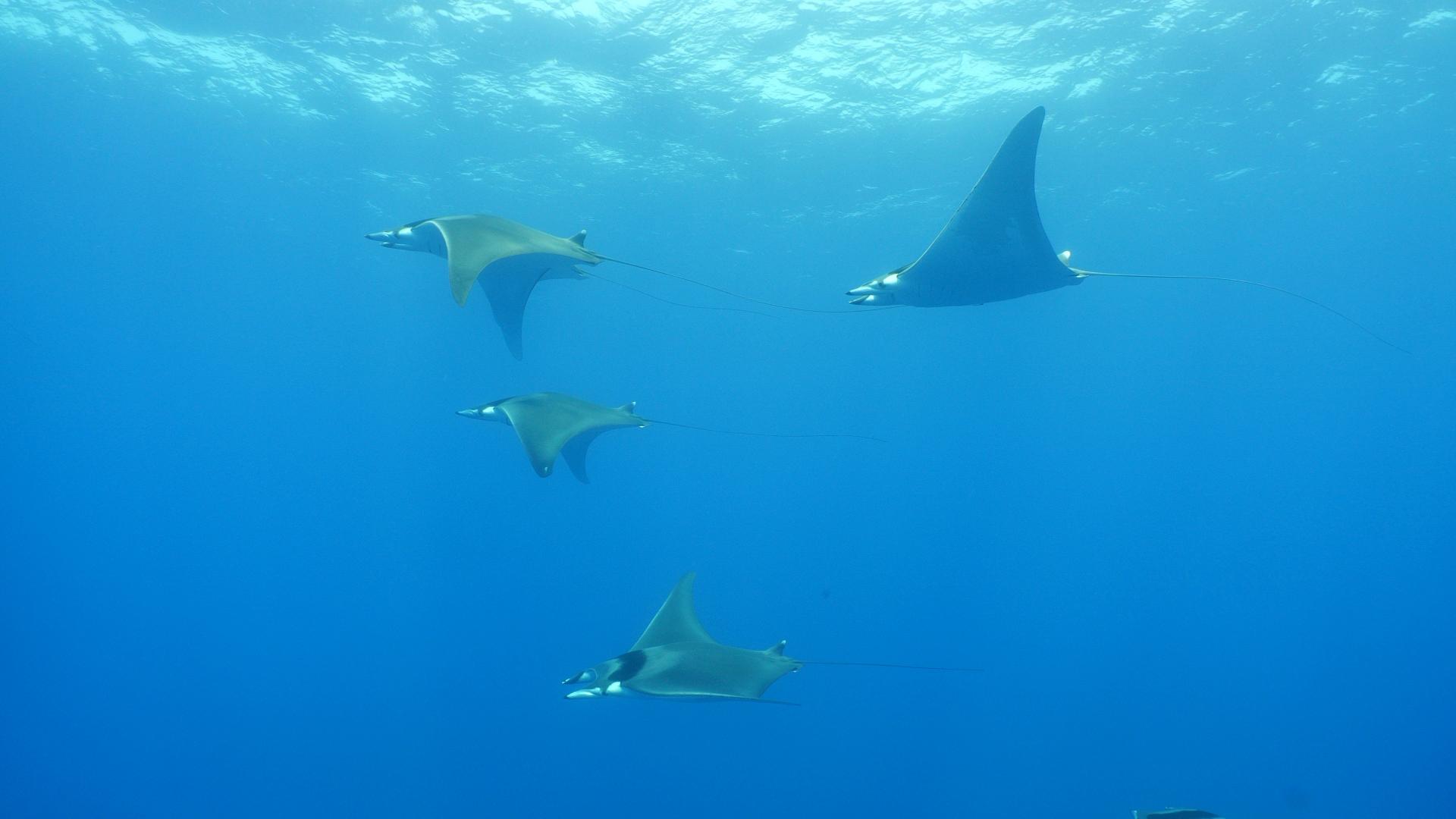“I decided to go to South Africa. I had a friend working there but my main reason was to see the sharks, see a Great White. It was January and on that first trip I was able to film a shark for the first time. In October I returned and managed to get a job with a cage-diving company.

“To be honest, I had no marine biology training, no marine background at all and it’s a hard enough industry to get into with qualifications, so I was extremely lucky. I stuck with it and gained a great deal of experience and started filming with an old camera.
“I first started playing with cameras when I was a kid; my dad had access to a huge VHS shoulder camera and some old-school VHS editing machines. I started making movies when I was quite young and also re-editing nature shows with my own voiceover – they were terrible. I didn’t go into a career behind the camera immediately – it was an interest but nothing more.
“When I picked it up again in 2014 it was mostly editing and underwater filming with a GoPro. It was that year that I took a big leap back into filmmaking, as I headed to South Africa to intern for a company called White Shark Africa.

“It was in South Africa that I saw my first ragged tooth shark (grey nurse/sand tiger). I had seen them in aquariums in different parts of the world and knew a little bit about their style. ‘Raggies’ look pretty intimidating, but that’s just because you can see most of their teeth most of the time.
“They’re actually incredibly docile and tend to drift most of the time. We came across a ‘raggie’ in the entrance to a cave, which was a real moment for me. I remember lying next to it for a few minutes, then left it to get on with its day. When you get to look into their eyes, you can see that each shark has a different personality, it’s uncanny.”
After his time in South Africa he headed back to the UK and continued filming sharks and other marine life in British waters. He upgraded his equipment and worked with some of the country’s leading marine biologists making documentaries which have been broadcast by the likes of the BBC and other mainstream channels.

Then two years ago he got a call from Save the Med, who were looking for a multimedia manager. Dan jumped at the chance and since setting up home in El Toro, he has hardly spent a day out of the water.
“Save the Med is doing a wonderful job. We’re a small team but we’re breaking down major barriers. We’ve successfully pushed for more marine protected areas in the Balearics and recently secured the expansion of the size of the MPA around Dragonera. That is what we are concentrating on now.
“Apart from documenting the marine life around Dragonera, we’re engaging with the local community, fishermen, restaurants, dive clubs, hotels, etc. The idea is to explain to them the importance of protecting Dragonera’s waters. We’ve found that by working with them and making them feel that they have ownership of Dragonera and the marine species, they react in a very positive way. Once we’ve got this project together and up and running, the plan is to move on to other MPAs in Mallorca and the Balearics.”

Dan’s personal worry is the threat sharks face in the Mediterranean and across the world. Only this week, it was revealed that 40 percent of sharks are facing extinction and that saddens Dan a great deal.
“Obviously, the biggest threat to sharks and other marine life is overfishing - the super trawlers with their giants nets which scoop up everything and also long line fishing. This is much more so than plastic, although that’s a serious issue for all marine life which we are also tackling. I’ve filmed so many sharks which have large hooks caught in their mouths or jabbed into other parts of their bodies.
“Plus, what does not help is the media exposure sharks get; they get a really hard deal. For example, Blue Fin Sharks, or the Tintorera as we call them in Mallorca, were once very common in Balearic waters. In the two years I’ve been here, I’ve yet to film one. I’ve filmed them off Cornwall and other parts of the world and they are beautiful. More importantly, they are not dangerous.

“In fact, sharks are, by nature, not intentionally dangerous. They are very inquisitive and curious, especially young ones. For example, Great Whites don’t become sexually mature until they are around 33 years old and they may only have a couple of pups every two years or so. As soon as the pups are born, they are left to look after themselves. They are not mothered, so they start off life full of curiosity. The Great White in particular has been around for 400 million years and they are the doctors of the sea. They prey off dead marine life like whales and dolphins and that keeps the sea clean of infections. They play a very vital role in keeping the sea healthy, so we need them.
“The problem is the image films like Jaws and the media project. The biggest threat to sharks in general is a lack of awareness and understanding on behalf of the public.
“For example, sharks prey on seals early in the morning or in the evening, so don’t go into the water close to a pack of seals, you may get mistaken for a seal by a shark. Yes, surfers ands swimmers do get caught and may lose a limb which could lead to a lose of life, but they only lose a limb to a curious shark.
“If you were to see a shark, in particular a Great White in action attacking its usual prey, it’s frightening. They tear it to pieces, they don’t do that to humans. So what I have always tried to do is educate people about sharks and marine life in general and Save the Med does an excellent job at that as does Shark Med as well as other scientists and marine biologists from around the world.
“I also work closely with the rescue team at the Aquarium. Over the past year we’ve recovered a few dead sperm whales in Mallorca. What was really telling was that none of them showed any signs of shark bites, and that is a clear indication that the shark population in Balearic waters and the Mediterranean at large is seriously depleted and that they need protection.

“We’ve seen what has happened to the tuna stocks in Balearic waters. One of the largest breeding grounds in the world is south of Ibiza and since that became a protected zone eight years, tuna stocks are flourishing, and I’ve filmed some of the largest tuna I’ve ever seen in local waters. So based on that, a great deal can be achieved in a relatively short period.
“That said, I bet you didn’t know that Spain is the largest producer of shark meat in the world. Have a look next time you go to the market or a restaurant - try and figure out how many shark species are for sale.
“Plus, there is a serious problem with noise from the recreational boats, the cruise ships and ferries and toys lie jet skis. A few weeks ago we were out with a group of students following a pod of dolphins and we dropped some underwater microphones into the sea to listen to the dolphins clicking and talking to reach other.
“All we could hear was the noise from the marine traffic. Just think what impact that has on the dolphins if they can’t hear each other as they hunt for food. They operate by echo communication and if they can’t hear each other it could lead to them eating less due to the confusion. That is another thing we’re trying to improve by urging some action.
“But reducing noise from shipping, in particular recreational vessels, is going to be a tough nut to crack; there’s too much money involved. And money is always something. Save the Med needs to grow and expand its operations because the marine life around the Balearics is extraordinary. It’s an underwater paradise, but it needs protecting.”
To help, visit: www.savethemed.org









No comments
To be able to write a comment, you have to be registered and logged in
Currently there are no comments.